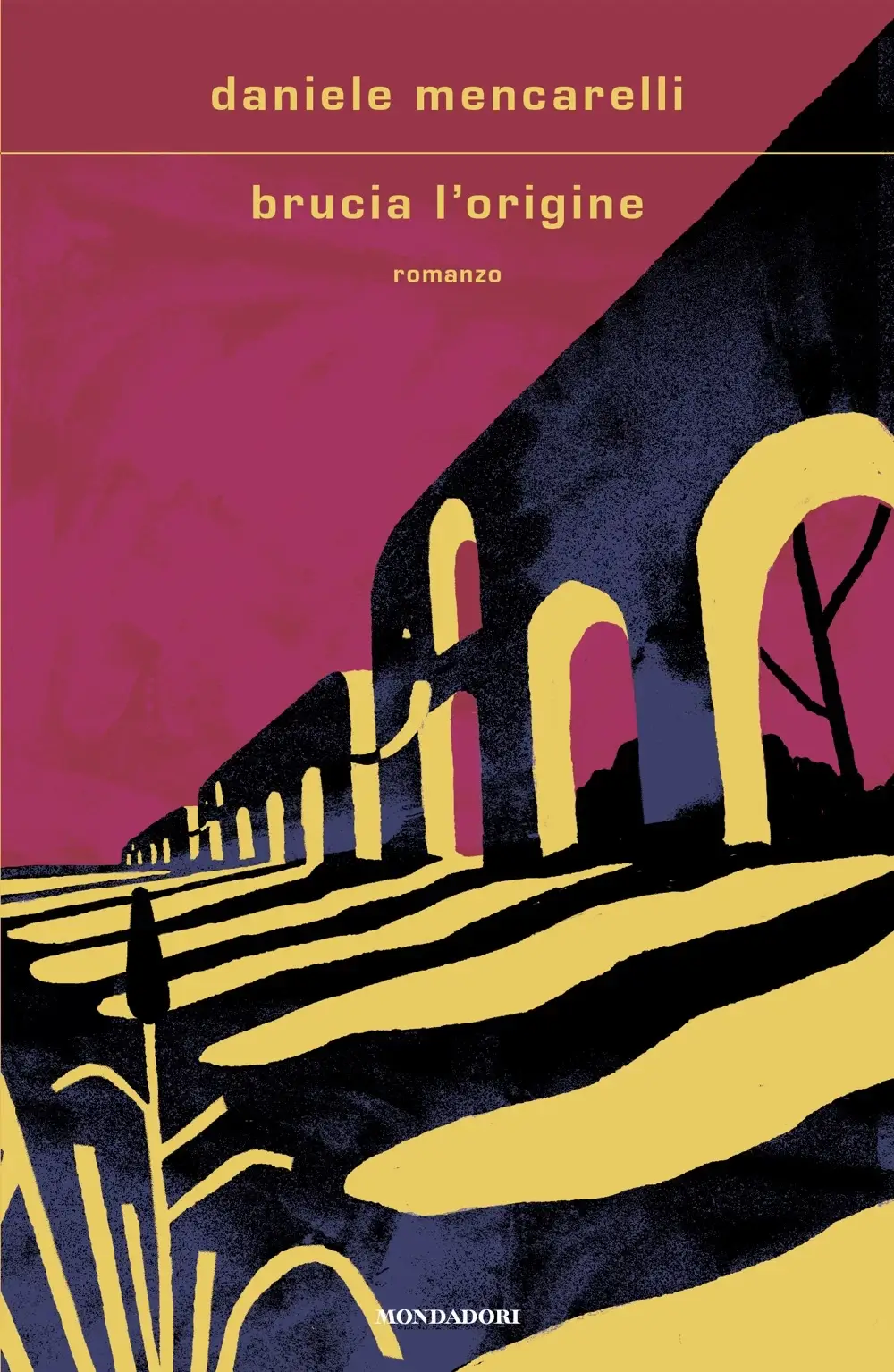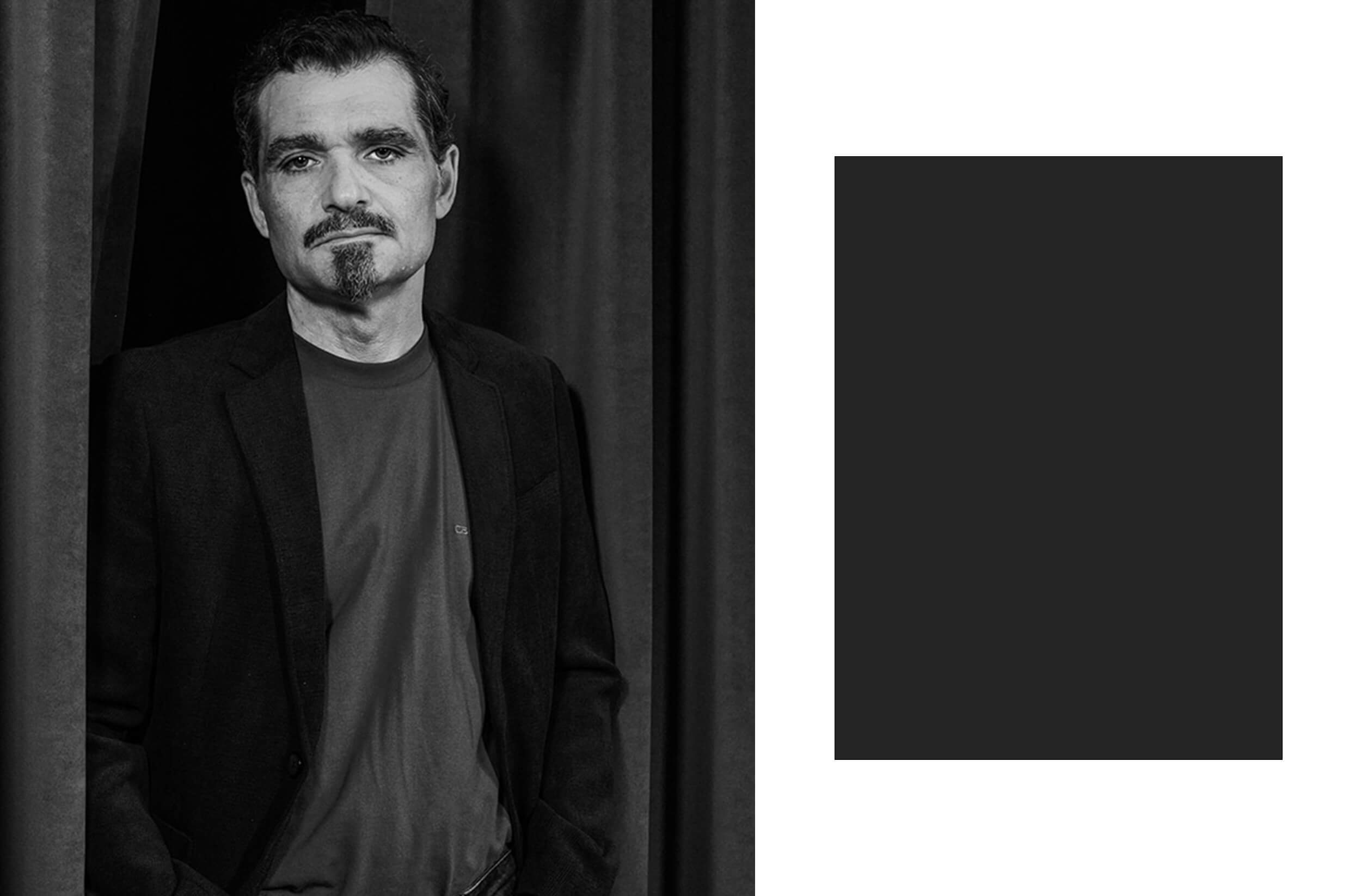Quella con Daniele Mencarelli non è mai una “semplice” intervista: dopo la chiacchierata lo scorso anno per “Fame D’Aria“, lo ritroviamo in libreria con “Brucia l’Origine“, un romanzo dove il protagonista, Gabriele, vive l’incontro/scontro tra il suo passato (nella Roma di quartiere) e il suo presente (nella Milano benestante). Passato, presente e futuro diventano quindi elementi di riflessione di una storia controversa, che ci ricorda l’importanza del trovare diversi punti di equilibrio nelle nostre vite per poter rimanere a galla. Daniele ci ha accompagnato in una riflessione sulle dinamiche razionali e generazionali, sul valore della scrittura intesa come partenza, ma soprattutto, ripartenza, e sulla volontà di inseguire vite e temi profondamente umani per poterli raccontare. Perchè alla fine scriviamo e leggiamo proprio in onore di quell’umanità che affrontiamo, immaginiamo e sogniamo.
Ben ritrovato Daniele, ancora una volta con un romanzo che racconta le complesse sfaccettature dell’animo umano. Da dove ha avuto origine questa volta il desiderio di raccontare la storia di Gabriele in “Brucia l’origine”?
Il desiderio era quello di mettere in scena un millennial; quindi, partendo da una generazione che secondo me vive, ha vissuto e vivrà schiacciata tra mille forze contrapposte. Oltre al tema della generazione, c’era la volontà di raccontare un giovane uomo alle prese con le difficoltà di chi attraversa mondi molto diversi in una chiave evolutiva, quindi diciamo ascensionale, e fa fatica poi ad accordare i diversi mondi che ha vissuto. E questo è un tema che vivono in tanti, mettere d’accordo e mettere in continuità il passato e il presente, soprattutto quando sono molto diversi tra loro.
Gabriele fa ritorno a Roma in una collettività familiare, dove oltre alla famiglia effettiva ci sono gli amici con cui è cresciuto e il quartiere che lo ha visto nascere. Che cosa rappresenta per te il sentimento del ritorno, come lo vivi?
Come dico sempre, il romanzo è controverso, all’insegna dell’ambiguità. Perché il ritorno, per chi è pacificato, per chi ha coltivato il proprio benessere interiore, può essere un momento di ricollegamento e riconnessione con le origini. Per chi invece non è riuscito a fare questo lavoro di riconnessione, di sintonizzazione dei vari mondi che gli sono toccati in sorte, spesso ritornare non fa altro che mettere alla luce i piccoli, grandi tradimenti che è costretto a vivere quotidianamente per farli convivere, un po’ come succede a Gabriele. Perché spesso questi mondi sono così diversi tra loro che il singolo individuo non riesce a trovare quella linea di equilibrio, di galleggiamento che gli permette di dire, a tutti i mondi che frequenta:
“Io sono la stessa persona che frequenta tutti questi mondi, rispettate i vari me, le varie versioni di me, come io rispetto voi che appartenete a mondi così diversi”.
Gabriele vive nel mezzo tra il suo passato a Roma e il suo presente a Milano, e questo essere nel mezzo lo logora piano piano perché, come scrivi in un punto del romanzo, non fa altro che “coltivare il tradimento, verso tutti”. Ma trovare un equilibrio tra chi si è stati, chi si è ora e chi si vorrebbe essere, è davvero così tanto una forma di egoismo? A volte ho come l’impressione che “fregarsene” del giudizio altrui e il concetto di libertà personale siano due facce della stessa medaglia… È un equilibrio difficile.
Anche qui, si tratta di trovare il punto di galleggiamento ed equilibrio tra il rispetto di quello che siamo, non per esercizio di puro egoismo, ma di tutela del nostro mondo interiore, e accogliere tutto quello che dall’esterno ci arriva come input e che ci chiede di essere qualcosa di diverso rispetto a quello che sentiamo di essere profondamente. In fondo è anche un libro sul grande tema del camuffamento, dei ruoli sociali, di quello che gli altri chiedono a noi e che noi spesso passivamente decidiamo di essere tradendo noi stessi. È un punto di equilibrio molto difficile da trovare, credo che trovarlo sia uno dei grandi obiettivi della vita di un individuo e credo che non sia sufficiente trovarne uno; ogni giorno ci chiede una riconferma rispetto a questo punto di equilibrio.

Le varie voci di questa storia e l’ambientazione data dai ristretti limiti del quartiere Tuscolano dimostrano quanto non basti il talento e la dedizione, anche la fortuna e il fato giocano un ruolo importante nella nostra vita. Come scrittore, ti sei mai sentito come Gabriele nel poter fare quello che ami e dimostrare la propria passione e talento ogni giorno?
Io ho vissuto la stessa difficoltà di Gabriele venendo da una provincia e da una famiglia di estrazione popolare. Apro e chiudo una parentesi a tal proposito: i mondi che Gabriele non riesce a mettere in sintonia sono mondi veramente accordabili tra loro? Perché c’è pure l’ipotesi che Gabriele non riesca a metterli in accordo perché sono talmente distanti tra loro che probabilmente non sono mondi che hanno una ragione per dialogare veramente nel profondo. Oggi va molto di moda non leggere più la nostra società in quella chiave tipicamente novecentesca che voleva la società divisa per classi: probabilmente queste divisioni esistono ancora, anzi, probabilmente sono ancora più profondamente divise rispetto a vent’anni fa. Però io ho vissuto come Gabriele la difficoltà di far condividere mondi molto diversi e come Gabriele ho sempre trovato la mia zona protetta nell’esercizio del talento. In fondo, Gabriele è un ragazzo che ha avuto un grande successo, si è affermato, e l’affermazione gli ha dato tante soddisfazioni, ma gli ha svelato il fatto che qualsiasi sogno, una volta realizzato, ha anche degli aspetti negativi che uno non mette in conto. Lui è felice e veramente libero solo quando vive il suo talento, quando disegna, ed è un po’ quello che succede anche a me con la scrittura.
Collegandoci alla domanda precedente, è un sentimento che porta con sé anche una dose di responsabilità. Nel corso della tua carriera, come è cambiata e come si è evoluta questa responsabilità appunto della scrittura?
Come scrittore, l’esercizio del talento, il lavoro intorno alla scrittura continua ad essere centrale nella mia vita perché sento anche proprio il peso della responsabilità. Per me il valore testimoniale della scrittura è un valore cardine; lì, ritrovo tutte quelle motivazioni che mi hanno portato a scrivere e che ancora oggi rendono la scrittura una pratica fondamentale per la mia vita: raccontare vite che non sono la mia, raccontare chi tendenzialmente non può farlo da solo. L’elemento “epico” se vogliamo usare una parola pericolosa, ha per me un valore importantissimo.
Rispetto a questa tua affermazione, c’è un aspetto della natura umana ti piacerebbe approfondire prossimamente?
Ci sono dei temi che ancora non ho finito di scavare, alcuni riguardano dei fenomeni precisi; ad esempio, uno è inerente ad uno dei motivi che ferisce di più l’uomo, e non è la salute mentale. Quindi è sia l’idea di continuare a investigare l’uomo rispetto agli archetipi, ma anche investigare l’uomo rispetto ai fenomeni più contemporanei, che riguardano la nostra epoca. È quello che continuerò a fare fino a quando sentirà il bisogno e il desiderio di stare dietro ad una storia da inseguire.
E quell’incanto dell’essere giovani e spensierati che Gabriele vorrebbe rivivere, riesci ancora a percepirlo, anche se in modo diverso?
Raramente. Gabriele ha 36 anni e reimmergendosi nel suo quartiere, ritornando a vivere accanto ai suoi amici di infanzia, ritorna a vivere delle esperienze che hanno a che fare con l’infanzia e adolescenza e che aveva un po’ messo da parte. Io magari questi momenti li vivo di meno, e paradossalmente quello che mi restituisce all’adolescenza è proprio la scrittura, è quel momento che mi spoglia di qualsiasi certezza e che mi riporta ad essere il ragazzo di 18 anni che sta di fronte a un foglio bianco.
La scrittura per me non è un riprincipiare, ma un principiare, è un ricominciare da capo, un po’ come un’adolescente che parte con una storia d’amore che deve costruire lui e che non sa come andrà a finire. Quindi la scrittura è un po’ il grande luogo delle mie ripartenze e delle mie partenze.

“I posti dove uno nasce, cresce, restano pe’ sempre”: qual è il tuo ricordo più bello dei posti dove sei nato e cresciuto?
La mia infanzia e adolescenza sono divise in due grandi settori: il primo è dentro Roma, ed è attorno a via Tiburtina; ho dei ricordi legati alla primissima infanzia in un oratorio, il Teresa Gerini, dove c’erano degli studi di registrazione all’inizio degli anni ’80. Da Riccardo Cocciante a Gianni Morandi, in molti andavano lì per incidere dei dischi. E alla fine delle registrazioni facevano dei concerti per la borgata, la stessa che racconta Zerocalcare grosso modo, e io ho dei ricordi meravigliosi legati a questi concerti dove tutta la borgata partecipava. Un altro ricordo è la vittoria del mondiale ‘82 dell’Italia o nell’82-83 della Roma che vinse lo scudetto. Poi nell’84, quando avevo 10 anni, ci siamo trasferiti ai Castelli Romani e siamo andati a vivere in una casa in campagna e lì ho riscoperto la natura, ed è stato nella mia formazione un plus fondamentale, proprio ho scoperto il valore che può avere nella nostra vita essere a contatto con la natura. Questi sono stati i due grandi momenti che hanno formato ricordi ma che hanno formato anche il mio sguardo, quello che ho ancora oggi.
La nostra scorsa intervista è stata in concomitanza con l’annuncio della seconda stagione di “Tutto chiede salvezza”; oggi anche questa seconda parte si è conclusa ed è stato un viaggio emozionante fino alla. Se potessi, cosa diresti ora a Daniele, e a tutti coloro che sono direttamente colti dalle tematiche di questa storia?
Direi a quel ragazzo di fare tutto quello che ha fatto, perché lo porterà a parlare qui e adesso con te. Vedo la mia vita come un unico grande flusso di causa-effetto e tutto è stato assolutamente necessario per arrivare qui; sfilando anche solo una singola giornata o esperienza, non sarei qui. Quindi gli direi di rifare tutto, sapendo bene che quel tutto ha portato grande sofferenza, a me e non solo.
Qual è il libro sul tuo comodino in questo momento?
“La coscienza delle piante” di Nikolai Prestia, edito da Marsilio, un libro meraviglioso che affronta il tema di chi mente rispetto alla carriera scolastica.
Qual è il tuo posto felice nel mondo?
Sono due: uno è Torino e l’altro è sempre il posto che vivo al presente, quindi il mio posto felice nel mondo in questo momento è la macchina su cui sto viaggiando accanto a mio figlio.
Thanks to Mondadori





